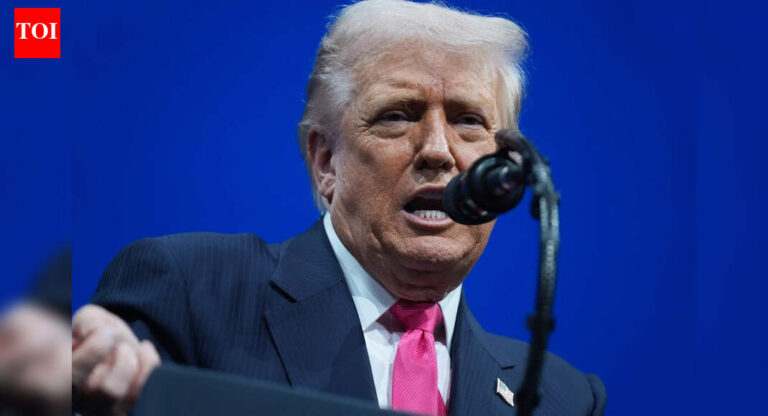
Lindsey Halligan’s sudden rise from a Miss Colorado USA finalist to one of the most scrutinised federal prosecutors in America has set off a political and legal firestorm. Installed by President Donald Trump as interim US attorney for the Eastern District of Virginia, she now finds herself at the centre of the case against former FBI director James Comey and at the heart of an extraordinary public clash with the judge overseeing it.Halligan, 36, was appointed after her predecessor reportedly refused to bring charges against Comey. Within days she began presenting evidence to a grand jury, but the prosecution has faced serious procedural failures, contradictions and accusations of political motive. The controversy deepened when Halligan publicly accused the judge of calling her a “puppet”, prompting a rare and highly criticised confrontation between a federal prosecutor and the bench.
Lindsey Halligan’s path to federal power
Halligan grew up in Colorado, where she played school sports and twice competed in the Miss Colorado USA pageant, reaching the semi-finals in 2009 and placing fourth in 2010. After studying politics and journalism at Regis University and earning her law degree from the University of Miami, she began her career in insurance defence litigation, eventually becoming a partner at a Florida firm.Her national profile changed after she met Trump at a West Palm Beach golf course in 2021. She later joined his legal team, appeared frequently on conservative media defending him, witnessed the FBI’s Mar a Lago search and even attended high profile events such as the US Open alongside him. By early 2025, Trump had brought her into the White House and then appointed her interim US attorney despite her having handled only three federal cases in her career.
Halligan’s appointment raises political questions
Critics argue that Halligan’s appointment was directly tied to Trump’s push to prosecute Comey before the statute of limitations expired. Her predecessor, Erik Siebert, reportedly declined to pursue charges; Trump removed him and installed Halligan, who launched the prosecution within days. Comey’s defence now claims this sequence demonstrates vindictive prosecution, alleging Halligan acted as a stalking horse for Trump’s political animus.The judge, Michael S. Nachmanoff, explored this issue in court, asking Comey’s lawyer whether the defence believed Halligan was functioning as a stalking horse or a puppet, for want of a better word, doing the president’s bidding. Although framed as a legal query, Halligan publicly accused him of a personal attack, escalating tensions dramatically.
The ‘puppet’ controversy explodes into public view
Following the hearing, Halligan issued a statement insisting: “Personal attacks like Judge Nachmanoff referring to me as a ‘puppet’ do not change the facts or the law.”DOJ spokesman Chad Gilmartin amplified her comments on social media, accusing the judge of crossing ethical lines. Legal experts reacted with astonishment, warning that publicly attacking a judge risks undermining the prosecution and could antagonise the court at a crucial moment.Lawyers and former prosecutors emphasised that Nachmanoff did not call her a puppet, but merely posed the term hypothetically in the context of the legal standard for vindictive prosecution. Still, Halligan’s response turned the exchange into a national controversy, deepening scrutiny of her experience and judgement.Halligan’s rapid ascent, her close ties to Trump, the grand jury confusion and her public dispute with the judge have all intensified scepticism surrounding the Comey case. For the judge, the central question is whether the prosecution is legally sound and whether it was driven by political pressure rather than evidence.








